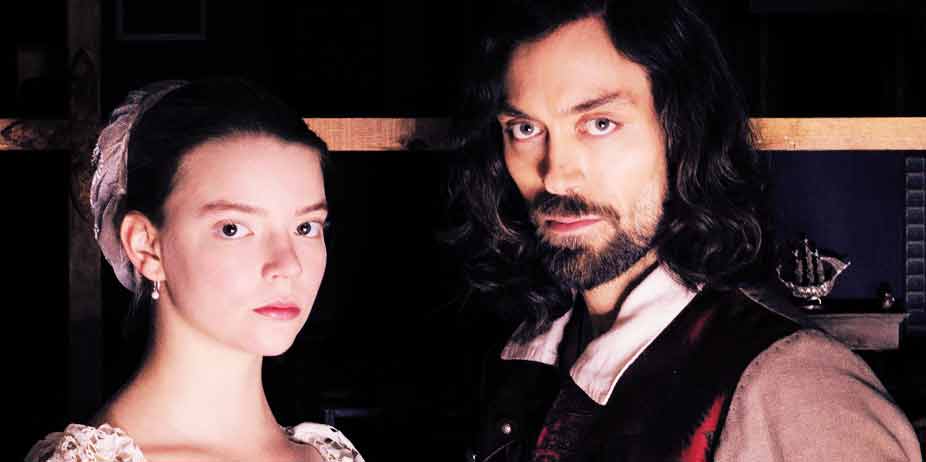 The
Miniaturist (2017)
The
Miniaturist (2017)
I have not yet read the best-selling novel that inspired this three-part BBC series, but now I want to. It's an odd story, set in an often-ignored period in history, full of intriguing characters, but it also left me with a lot of questions.
At eighteen, Petronella (Anya Taylor-Joy) arrives at her distinguished, wealthy new husband's home to a cold reception from his Puritan sister, Marin (Romola Garai), who whisks her parrot away into the kitchens so as to avoid listening to it squawk. When Johannes (Alex Hassell) returns, rather than bed his new wife, he gives her an extravagant present: a small-scale miniature of their home with rooms for her to furnish. Delighted with her gift, Nella writes to the local miniaturist for three small items to place in her house.
But more than three arrive. Confused as to the meaning of these gifts, Nella writes to forbid the miniaturist from sending any more... but small packages continue to darken her doorstep, some in unwanted hands. And after awhile, much to her horror, Nella discovers that the little items coincide with future events in the household. A drop of blood foretells a death and a stabbing. Small dolls arrive in a sinister order. And, she can never quite catch up to the miniaturist in the street to interrogate her, even as she learns the house has many dark, disturbing secrets...
The idea for this is brilliant, and in terms of execution, the film does an excellent job of being unsettling, of having the miniature house at the forefront, framed in sinister shots, and in allowing the lead actress' facial expressions to send a chill up the audience's spine. The craftsmanship that went into the miniatures is remarkable, so pretty that it places an eerie tone over the curiosity and dread we feel alongside Nella whenever she receives another package. The house feels large and oppressive, but the dollhouse feels small and sinister, and the sensation of waiting provides a rich, evocative atmosphere. If there's one flaw, it's that the plot can be hard to follow, since minor characters are not always identified by name, and sometimes the dialogue is so obscure, the meaning is hard to infer without later context; I suspect it's a story better watched a second time, with awareness of where the plot is headed, to fully appreciate it.
The costumes are lovely, and one has a sense of the overall period, as well as its Puritanical influences; but the cast is somewhat unlikable due to their hypocritical behaviors, and I never knew what anyone's true motive was -- unless you knew something about the period already (how it perceived children born out of wedlock, or inner-racial relationships, for example) you might get 'lost,' since it never really explains any of those things. It also suffers the fate of a truly depressing second half, and a story that simply... ends without tying up some of the subplots (what will become of the sugar, and will Nella sell it or let it rot?). If you're fine without total resolutions, it might divert you for a couple of hours, but if you want total understanding, it feels bite-sized.
Sexual Content:
A woman tries to seduce her husband (she reaches inside
his pants, he shoves her away); we see a woman's bare
back as she examines herself in a mirror; we see a naked
woman from behind as she bathes (through a keyhole); a
woman finds a man performing oral sex on her husband; a
trial for sodomy revolves around repeated references to
sodomizing.
Violence:
A man stabs a dog in the head (off screen) and kills it;
two men struggle and one knifes the other; a man has a
millstone thrown around his neck and is thrown into the
sea to drown (off-screen); a woman bleeds to death after
giving birth.
Other:
A woman references having a "third eye" and seeing
things; all the characters show religious hypocrisy.
